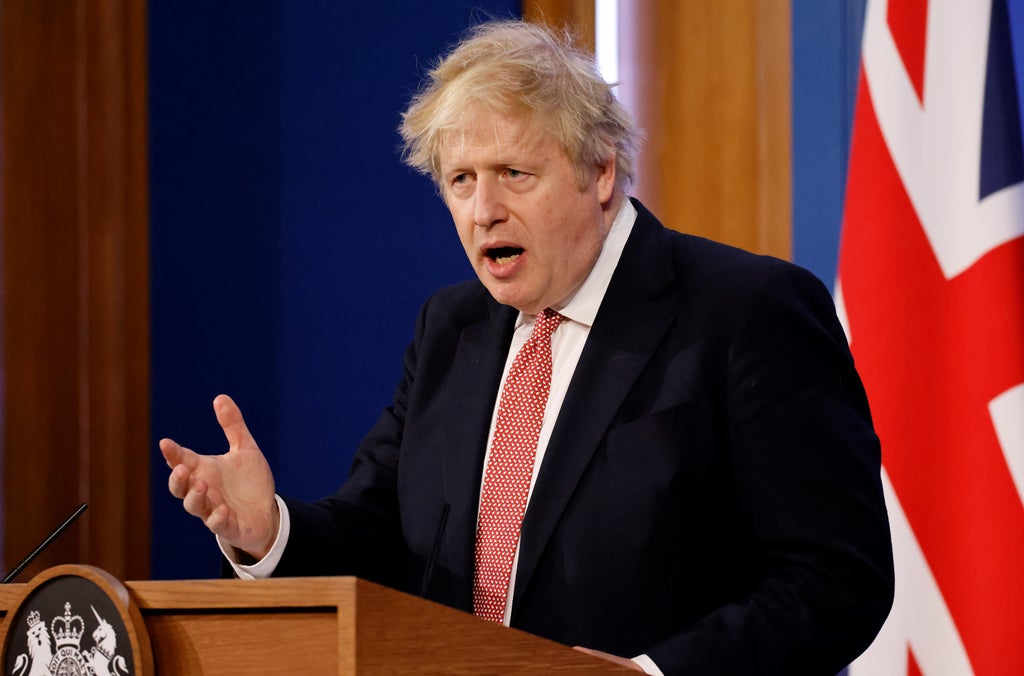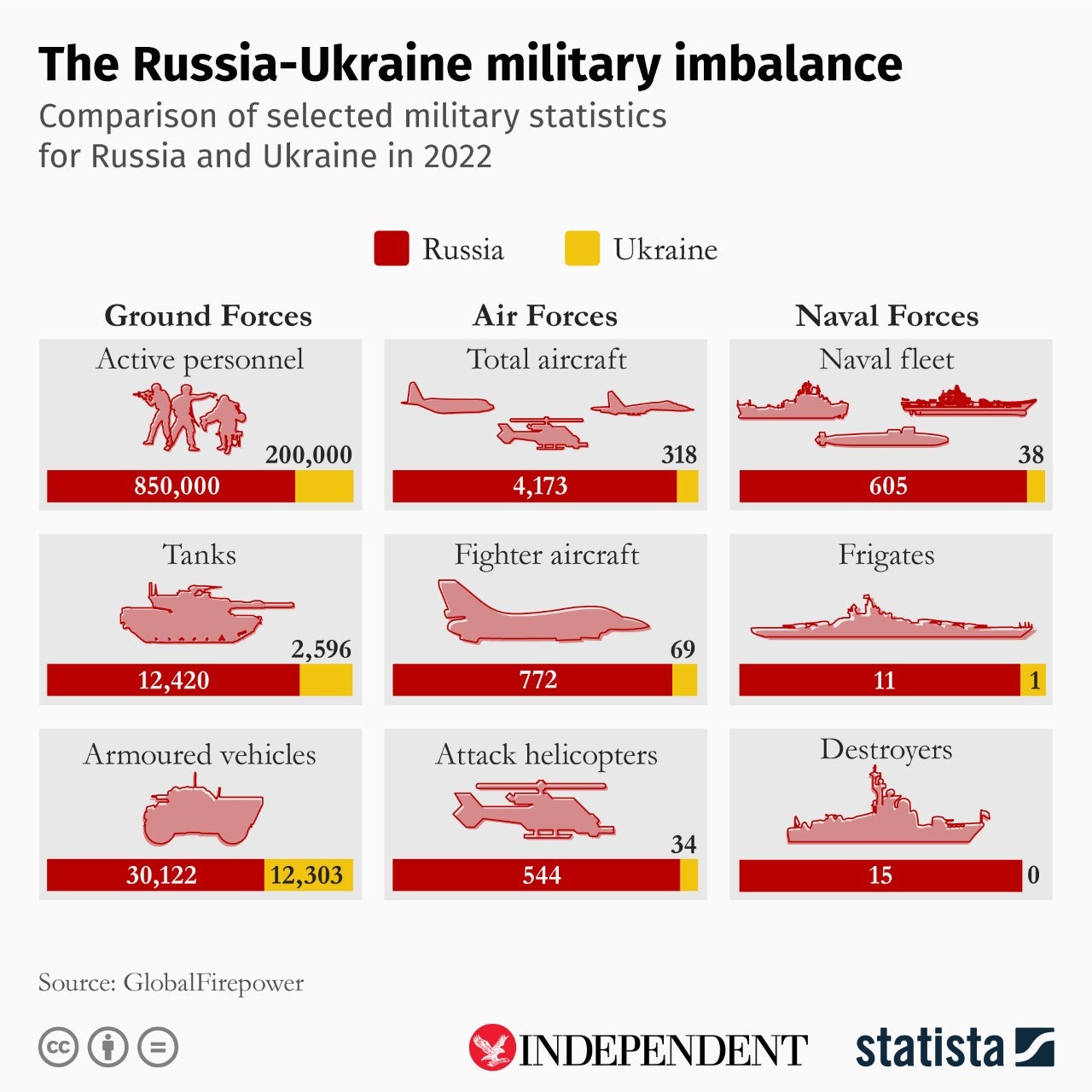
The UK is imposing sanctions on five Russian banks and three wealthy individuals in response to Vladimir Putin’s military incursion into Ukraine, Boris Johnson has announced.
In an emergency statement to the House of Commons, the prime minister said that the movement of Russian armed forces into the breakaway regions of Donetsk and Luhansk amounted a “renewed invasion” of Ukraine.
President Putin was “establishing the pretext for a full-scale offensive” and if the worst happens, Ukraine can expect to become “the target of a full scale war of aggression”, warned Mr Johnson.
Mr Johnson said that the UK will continue to seek a diplomatic resolution to the crisis “until the last possible moment”.
But he said that it was time to recognise that the Russian president appears “implacably determined to go further in subjugating and tormenting Ukraine”.
“We must now brace ourselves for the next possible stages of Putin’s plan: the violent subversion of areas of eastern Ukraine by Russian operatives and their hirelings, followed by a general offensive by the nearly 200,000 Russian troops gathered on the frontiers, at peak readiness to attack,” said the PM.
“If the worst happens, then a European nation of 44 million men, women and children would become the target of a full-scale war of aggression, waged without a shred of justification, for the absurd and even mystical reasons that Putin described last night.”
Announcing the initial tranche of UK sanctions in response to Putin’s actions, the PM pledged that Britain “will not waver” and was ready to implement further “much, much tougher” action will be taken if the crisis heightens.
“We should steel ourselves for a protracted crisis,” said Mr Johnson.
“The United Kingdom will meet this challenge side by side with our allies, determined that we will not allow Putin to drag our continent back into a Hobbesian state of nature where aggression pays and might is right.”

Mr Johnson named the five Russian banks Rossiya, IS Bank, General Bank, Promsvyazbank and the Black Sea Bank as subjects of sanctions, as well as three “very high net worth individuals”, named as Gennady Timchenko, Boris Rotenberg, and Igor Rotenberg.
Timchenko and the Rotenberg brothers are billionaire businessmen and all close confidantes of Mr Putin.
But leading Putin critic Bill Browder dismissed the list as “very tepid” after Mr Johnson’s earlier promise of a “barrage” of sanctions striking at Putin’s inner circle.
And Labour MP Margaret Hodge said that she had legal advice that the measures had “serious flaws” and would cover only 15 on the list of 35 key “kleptocrats” recommended for sanction by allies of opposition leader Alexei Navalny, including Chelsea owner Roman Abramovich.
Dame Margaret told the Commons that the sanctions were drawn too narrowly and would miss many oligarchs close to Putin as well as members of the Duma.
But Mr Johnson insisted she was “in error”, as Mr Abramovich himself was already subject to sanctions and Timchenko features on the Navalny list.
Setting out the effect of the sanctions, the PM said: “Any assets they hold in the UK will be frozen, the individuals concerned will be banned from travelling here, and we will prohibit all UK individuals and entities from having any dealings with them.”
And he promised: “This is the first tranche, the first barrage, of what we are prepared to do: we will hold further sanctions at readiness, to be deployed alongside the United States and the European Union if the situation escalates still further.”
Labour leader Sir Keir Starmer backed the sanctions but said the PM should not wait to go further.
“A threshold has already been breached,” said Starmer. “A sovereign nation has been invaded in a war of aggression based on lies and fabrications.
“If we do not respond with a full set of sanctions now, Putin will once again take away the message that the benefits of aggression outweigh the costs.”
He called for a broadcast ban on the Russia Today TV station, the cancellation of the Nordstream 2 oil pipeline and the exclusion of Russia from international financial mechanisms and trade in its sovereign debt.
And he said Mr Johnson should admit his “mistakes” in failing to clamp down on illicit Russian money in London.







